Research for Social Services Award
Sponsored by

Recognising a public authority, research institution, or collaborative partnership between research institutions and public administrations that has significantly contributed to advancing knowledge, policy, and practice in social services through research and evidence-based work. This award highlights initiatives where data-driven insights, academic research, or applied studies have led to meaningful improvements in service delivery, social policy, and outcomes for vulnerable populations. Special consideration is given to projects that foster cross-sector collaboration between public authorities and research institutions, ensuring that findings translate into real-world impact and sustainable policy change.
Examples of key areas of research in social services:
- Evidence-Based Policy Development – Conducting research that informs social care policies, workforce strategies, and funding models, ensuring that decisions are rooted in robust data and best practices.
- Innovations in Social Service Delivery – Using research to test, evaluate, and scale new models of social services and social care and support.
- Data-Driven Insights for Social Inclusion – Leveraging quantitative and qualitative research to improve access to services for vulnerable populations.
- Impact Assessment and Service Evaluation – Developing frameworks to measure the effectiveness and sustainability of social services programmes.
- Cross-Border and Comparative Research – European and international collaboration projects that compare policies and practices across European regions, fostering shared learning.
Special consideration is given to initiatives that:
- Conducted research informing social care policies, workforce strategies, and funding models
- Promoted Social Services Innovation Research using research to test, evaluate, and scale new models of social services and social care and support.
- Leveraged quantitative and qualitative research to improve access to services for vulnerable populations.
- Assessed impact and evaluated services – Developing frameworks to measure the effectiveness and sustainability of social services programmes.
- Promoted cross-border and comparative research – European fostering and scalable proposals across Europe
Research for Social Services Award 2025 Winner
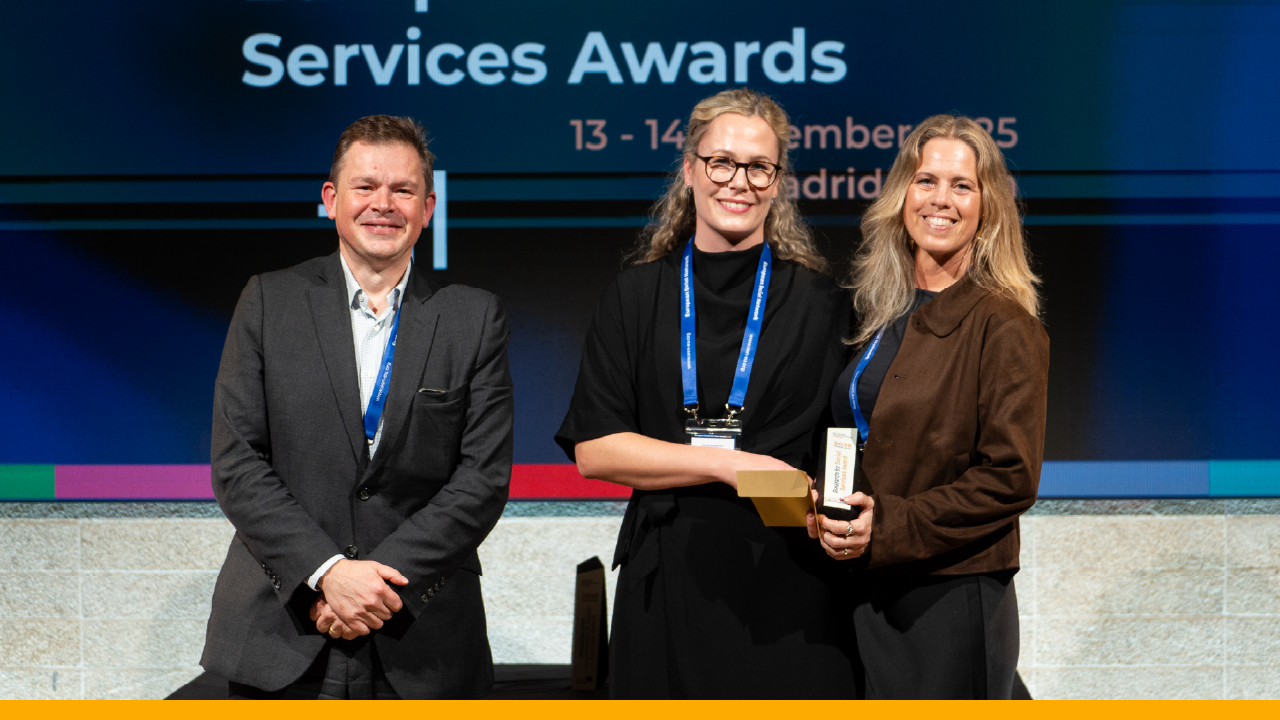
Title: “NUSO – National Follow-up of the Social Services Transition”
Organisation: The Swedish Association of Social Services Directors (FSS), The Swedish Association of Local Authorities and Regions (SALAR) and Karlstad University (KAU), Sweden
More information here: Nuso | Project Page
Summary: Sweden’s social services have long lacked a unified documentation system and national structure for information management, limiting collaboration, statistics, and meaningful comparisons. To address this, the Swedish Association of Local Authorities and Regions (SALAR) and Karlstad University (KAU) launched NUSO (National Follow-up of the Social Services Transition).
NUSO is a pioneering research and development initiative combining systematic follow-up with research to build knowledge ahead of the new Swedish Social Services Act (effective July 2025) and to monitor reforms over time. Its focus areas include accessibility, preventive work, equality, and evidence-based practice. Initial work has centred on child welfare, revealing disparities: older children and those with Swedish backgrounds receive more interventions, while children’s voices are often under-documented.
NUSO’s impact is evident in three areas: widespread local, regional, and national development initiatives; new insights into conditions for national-level monitoring; and the creation of a national research network linking municipalities and universities in practice-oriented collaboration.
Research for Social Services Award 2025 Nominees

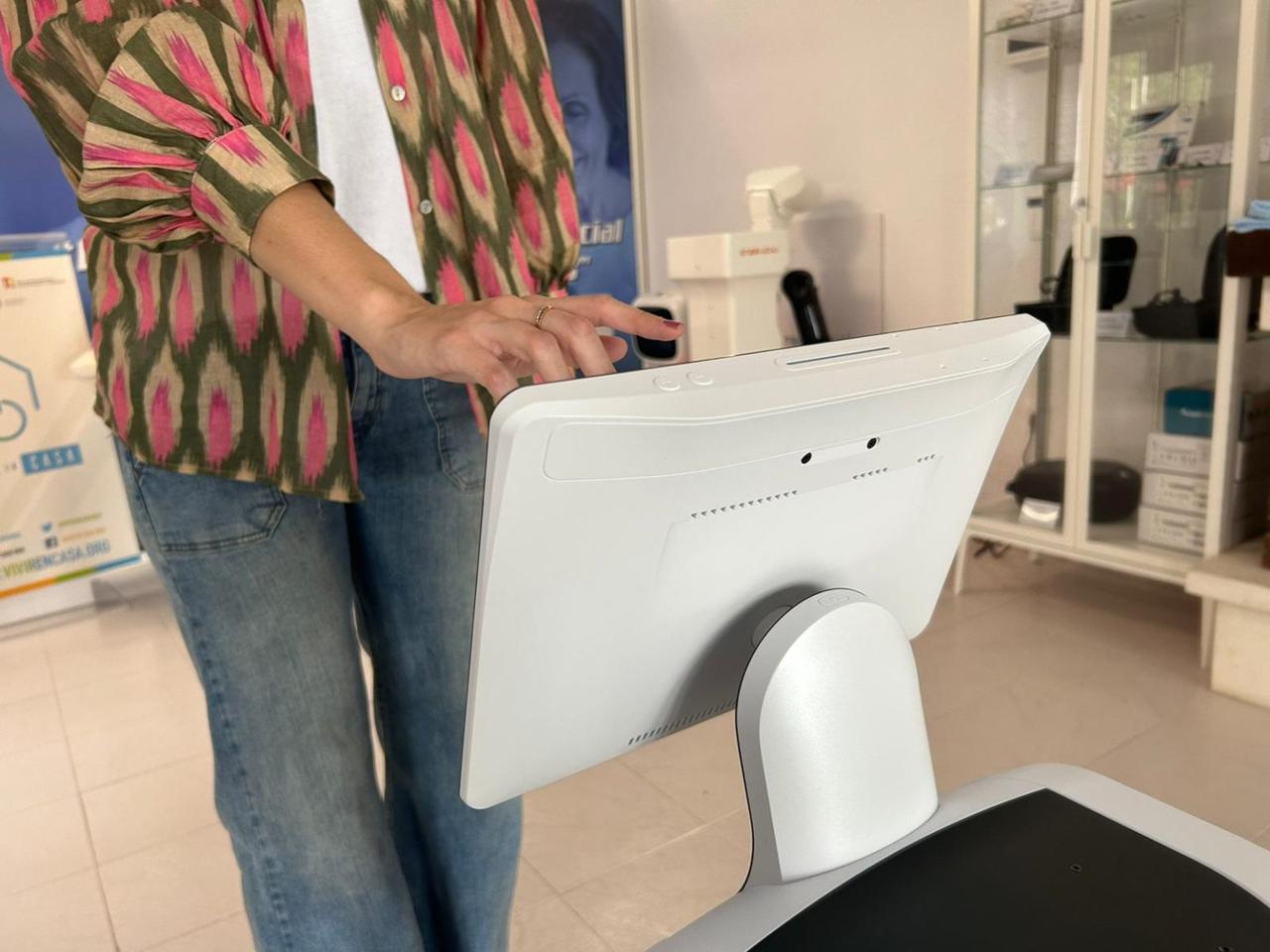
Title: “Vivir en Casa: Living at Home Project”
Organisation: Universidad de Málaga, Spain.
More information here: https://vivirencasa.org
Summary: The Living at Home project rethinks traditional care models for people in situations of dependency by offering a more humane and personalised alternative to residential care. It focuses on supporting individuals to remain in their homes, surrounded by their routines and communities, through a flexible mix of technology and social support.
At the heart of the project is the Social Living Lab, a real-life testing space where a team of engineers, social workers, therapists and volunteers collaborate to adapt homes using home automation, robotics and tailored interventions. Fifteen people and their families are currently taking part in the pilot phase.
Early results show clear benefits: improved autonomy, mental wellbeing, and social engagement, along with fewer emergency calls and greater satisfaction among users and caregivers. With strong cross-sector collaboration and funding from the Next Generation EU programme, the project offers a promising model that could be scaled regionally and nationally.
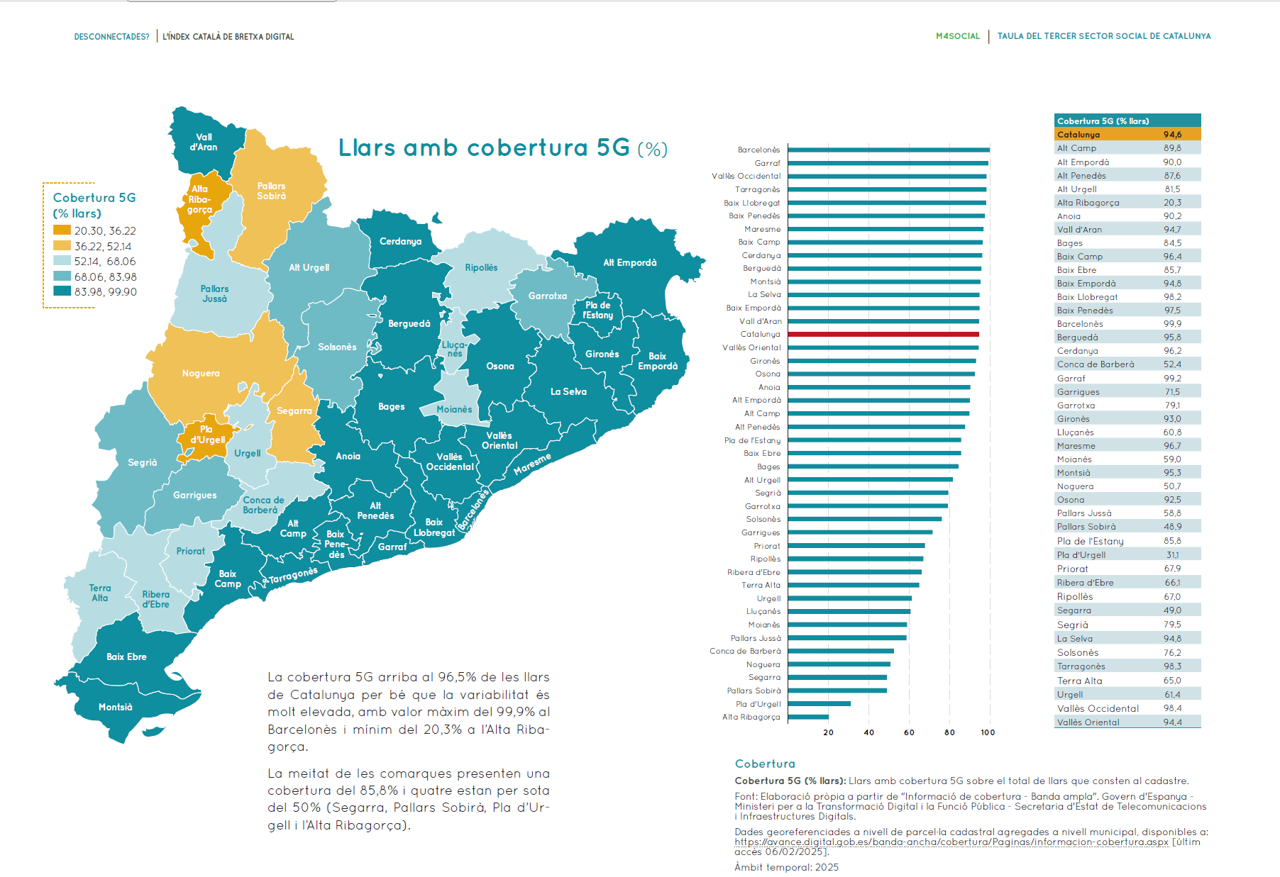
Title: “Disconnected: The Catalan Digital Divide Index”
Organisation: Taula d'entitats del Tercer Sector Social, Spain.
More information here: Desconnectades? | Taula d'entitats del Tercer Sector Social de Catalunya
Summary: Disconnected? The Catalan Digital Divide Index is a report that provides a comprehensive and data-driven overview of digital inequalities across Catalonia. Developed by Taula’s innovation project, m4social, the index measures disparities in infrastructure, equipment, and digital usage using public and private administrative data.
It highlights territorial and social differences, especially among vulnerable populations. In an increasingly digitalised world, socio-digital inequalities are a major concern, and reducing them is essential to building a fairer, more inclusive, and equitable society. Therefore, it is vital to have data and tools that allow analysis and assessment of the socio-digital divide to inform decision-making.
The project aims to inform social care policies and administrations and to create change in access to information, as well as in user and system approach methodologies by considering the new divide indicators. It is an ongoing analysis, and this first publication sets the basis for long-term, cross-sectoral impact evaluation.
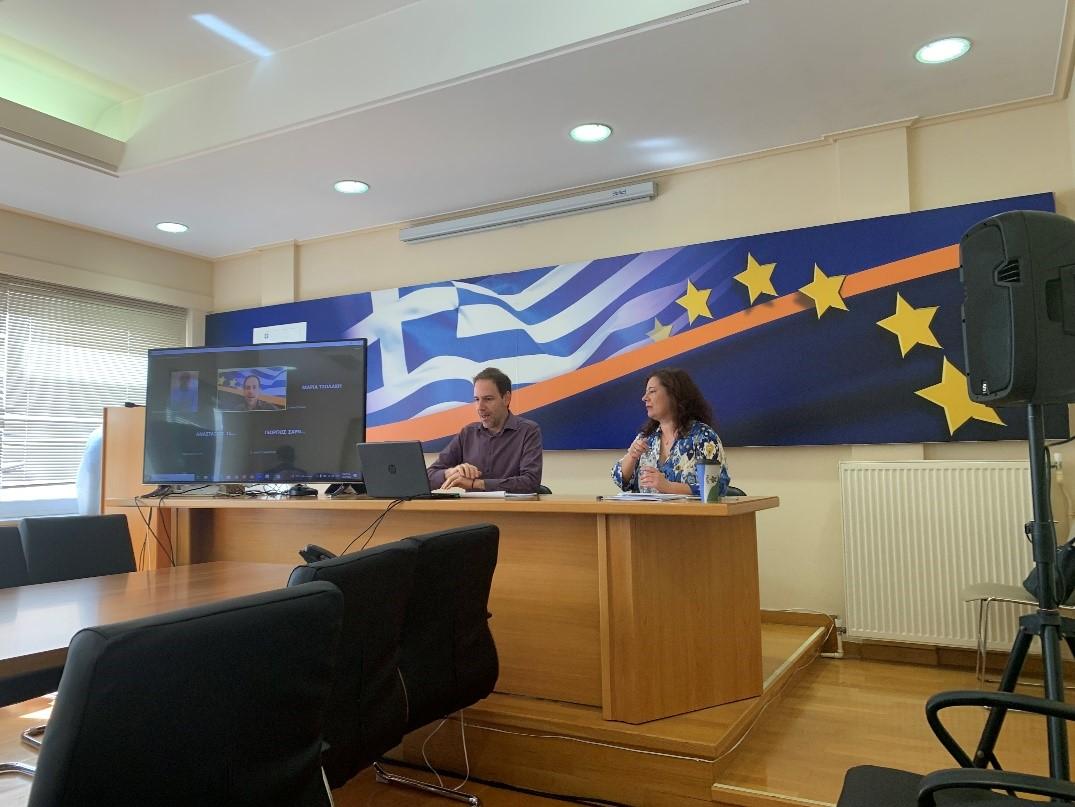
Title: “Evidence-Based Tools on EU Funding of Social Services”
Organisation: University of West Attica - Social Administration Research Laboratory, Greece.
More information here: Social Administration Research Lab - SARL | University of West Attica
Summary: Greece still faces serious difficulties in offering stable and well-funded social care services, especially for children, older people and people with disabilities. Many public bodies, like the Regional Social Welfare Centre of Attica (the biggest public provider of care services in Grece), could significantly improve their social investment agendas through the use of available EU funding but often lack the tools and knowledge to access it properly.
To help overcome these barriers, the University of West Attica developed a project to strengthen the Centre’s capacity to use EU financial instruments. The research team worked closely with professionals and managers, using legal analysis and group discussions to create three practical guides. These instruments explain clearly how to apply for funding from complex trajectories (the Cohesion Policy 2021-2027 and the Recovery and Resilience Facility 2021-2026), taking into account the eligibility conditions of EU Programmes under direct and shared management.
More than 100 professionals were involved in the process, and the Centre is now ready to submit evidence-based proposals to national and European authorities. The project has set a new standard for how public services in Greece can plan more effectively and secure funding to improve care for those who need it most.
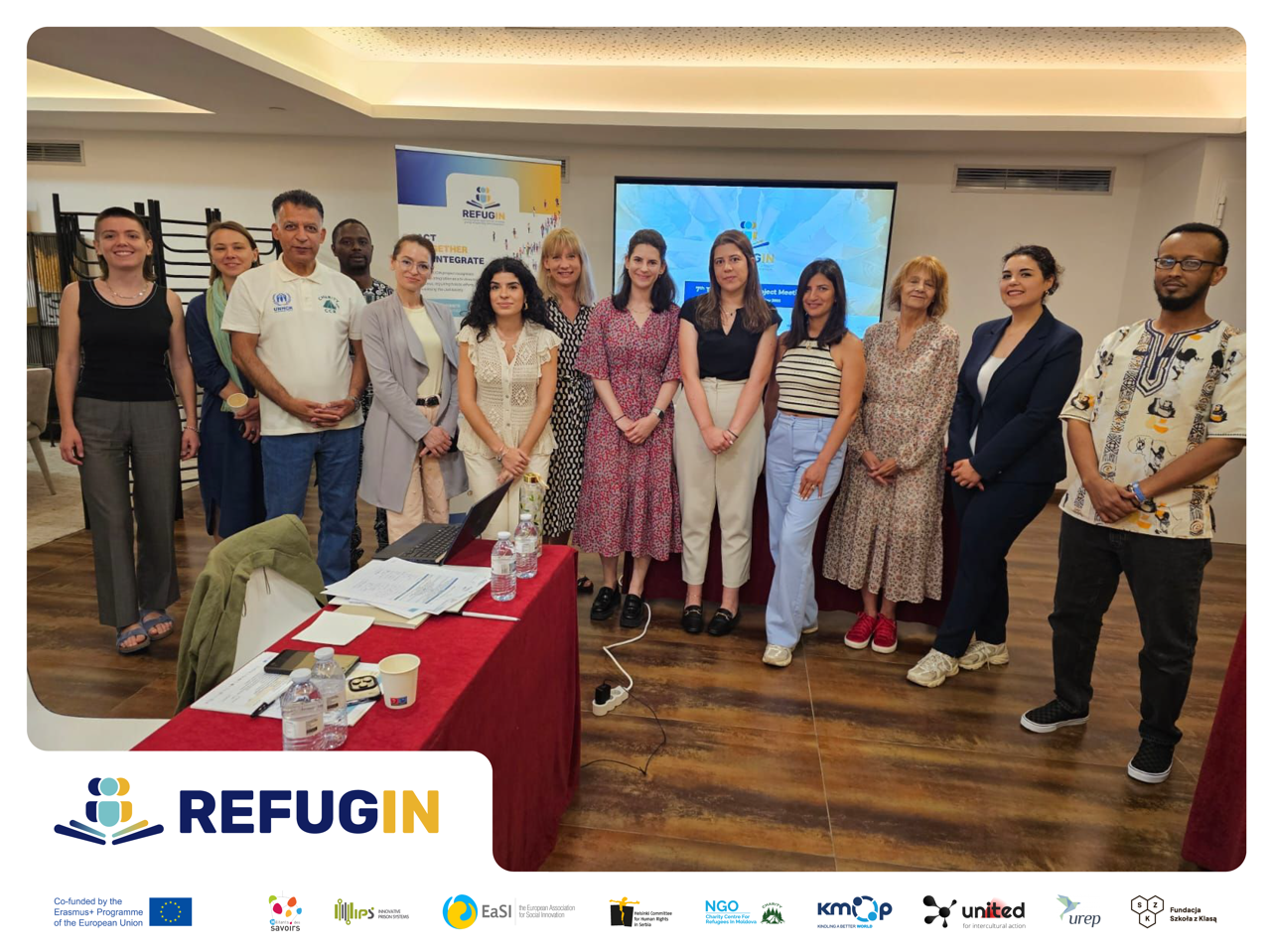
Title: “REFUGIN: Holistic Community Approach to Long-Term Integration of Young Refugees”
Organisation: Association Les Militants des Savoirs, France & IPS_Innovative Prison Systems, Portugal
More information here: Home - Refugin Project
Summary: The REFUGIN project brings together nine organisations from eight European countries to support young people in refugee-like situations as active agents in their own integration. Recognising that sustainable inclusion is a two-way process, the project works with both youth and civil society to build long-term, community-based approaches that foster dignity, belonging, and intercultural understanding.
REFUGIN combines research, training, and mentoring to strengthen integration pathways. Over 500 practitioners have been trained in trauma-informed and culturally responsive approaches, while 50 young people are currently engaged in an innovative e-learning programme. A mentoring scheme, pairing youth with civic and educational mentors, is also being piloted across the partner countries.
By directly involving youth with lived experience in the design and delivery of its activities, REFUGIN ensures its tools are grounded, relevant, and sustainable. To date, the project has reached more than 1,600 participants, contributing to stronger, more inclusive communities across Europe.
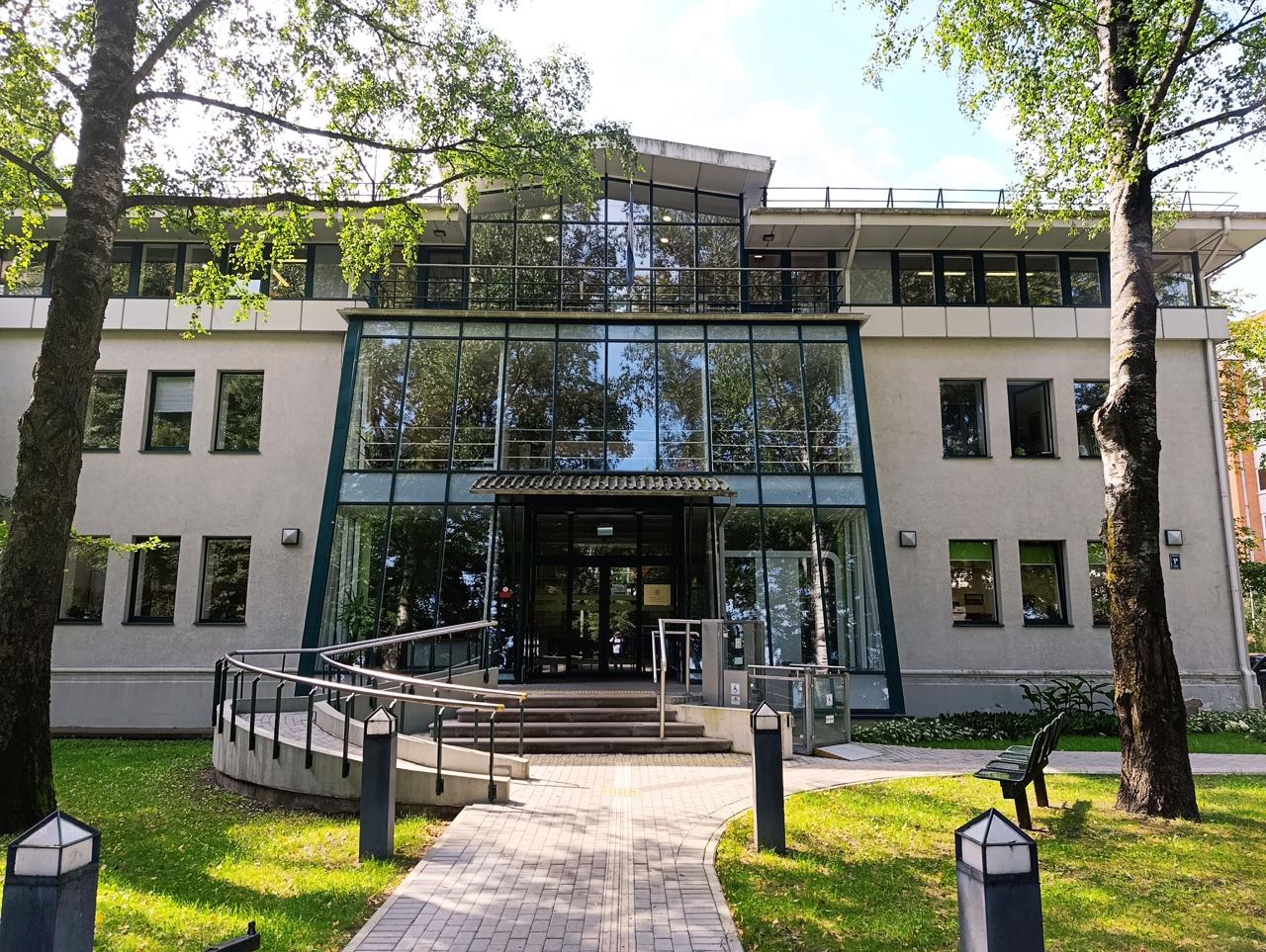
Title: “Measuring What Matters: Comprehensive Evaluation of the Family Assistance Service”
Organisation: Riga City Council Welfare Department, Latvia.
More information here: RD LD | Sākumlapa
Summary: The Measuring What Matters project focuses on the real struggles of vulnerable families in Riga such as housing insecurity, unemployment, substance abuse, health problems, and parenting challenges. While family assistant services already exist, standard evaluations have suggested minimal impact, raising doubts about their value.
To address this, the Riga City Council Welfare Department, together with local partners, carried out a thorough evaluation of the Family Assistant Service. By combining quantitative tools with qualitative methods such as risk assessments, interviews, and case analyses, the project revealed significant potential improvements often missed by conventional approaches. Families showed progress in routine, stability, and cooperation, subtle but important steps toward resilience.
These insights led to refined assessment frameworks, ensuring future evaluations reflect genuine progress. So far, 151 families have been supported by 53 family assistants, helping to make Riga’s social services more effective and sustainable.
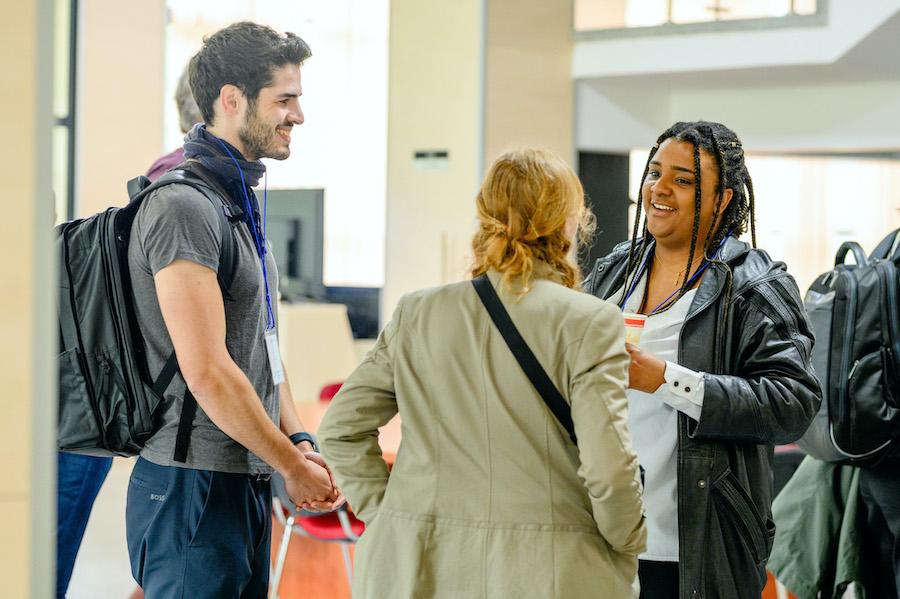
Title: “Enhancing Responsiveness to Citizen Voices in Social Services across Europe”
Organisation: Centrul de Formare si Evaluare in Asistenta Sociala (CFCECAS), Romania.
More information here: https://responsive-europe.eu/
Summary: The RESPONSIVE project is working across six European countries to help social services become more democratic by listening to the voices of those who use them. Focused on services for people with disabilities, children, young people, and service managers, the project is introducing the concept of “responsiveness” to ensure participation leads to real change.
Through in-depth research with over 1,500 service users, professionals, and advocates, the project is identifying what enables organisations to act on feedback, and where common barriers exist. This learning is used to develop practical tools, including a self-assessment framework and a participatory innovation toolkit, to support services in embedding citizen voice into everyday decisions.
Pilot projects are already underway, reaching thousands of families in all Europe. With over 200 organisations engaged, RESPONSIVE is helping build more inclusive, accountable and forward-looking social services across Europe.